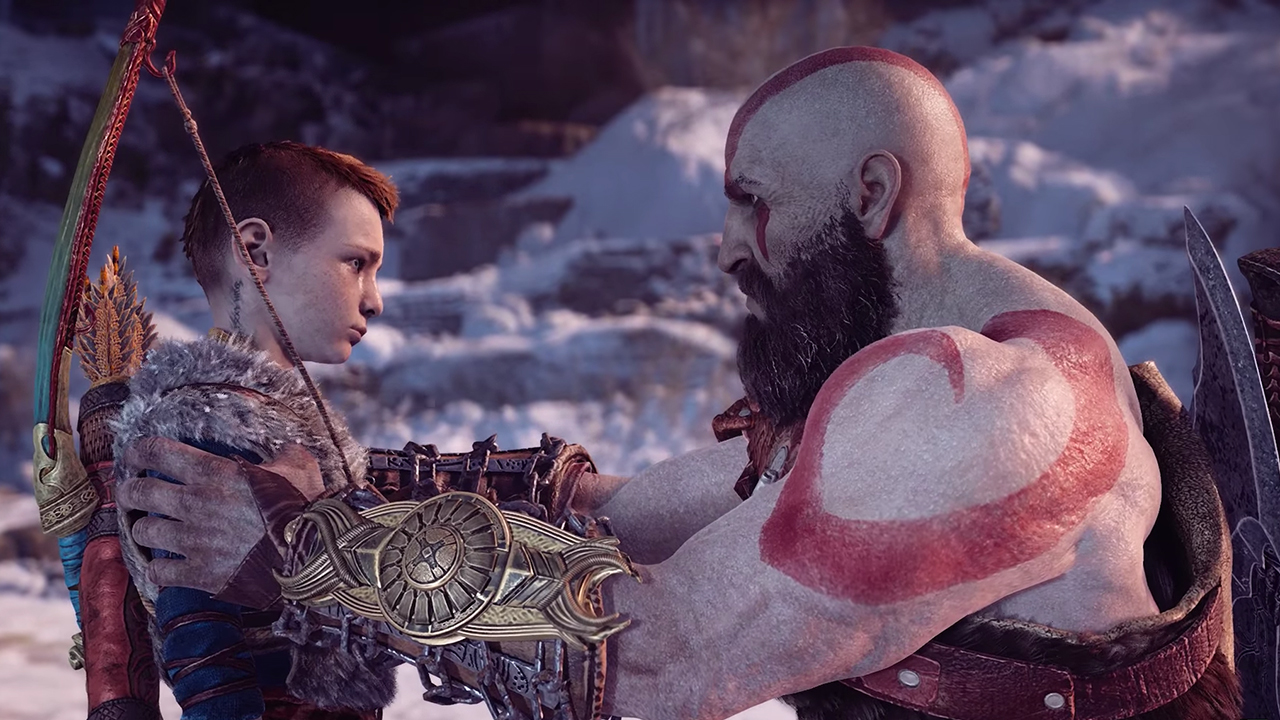
(Image credit: Sony)
“Change is possible”. These were the opening words from creative director Cory Barlog in the Raising Kratos documentary, released five years ago on YouTube. This compelling film captures the making of the God of War reboot, from its initial concept through its unforgettable E3 reveal, culminating in its 2018 release. As we celebrate the 20th anniversary of the original 2005 God of War game, I find myself continuously revisiting Barlog’s message.
Before the reboot, my knowledge of the series was limited. My 13-year-old self likely wouldn’t have appreciated the raw intensity of the earlier games. However, the buzz around Kratos’ return drew me in, and in 2018, I decided to explore beyond my comfort zone. That decision led me to an extraordinary journey, where the concept that “change is possible” became central to my experience with this memorable game.
The reboot not only embraced this theme through its affecting narrative and relatable characters but also highlighted what a remarkable feat Sony Santa Monica Studio achieved, turning an established franchise into one of the most successful reboots of recent times.
God of War has earned its place among the best PS4 games ever made. Former head of Sony Santa Monica Studio Shannon Studstill summed it up perfectly in the documentary: “there’s a lot of risk involved in that one sort of concept – reboot.” Reviving a series in a bold new direction is no small task. As a character, Kratos was the quintessential violent anti-hero, known for his brutal past and complex journey.
In a PlayStation blog, Barlog noted, “we intentionally made him [Kratos] loathed, an antihero. Now we’re trying to make him a character you care about.” Transforming Kratos into someone relatable was no easy feat, yet they succeeded, making him more than just his past. In both God of War and its sequel, God of War Ragnarok, I felt connected to Kratos, his son Atreus, and others like Freya, whose stories resonated deeply.
The reboot masterfully explores themes of redemption, family, and humanity amidst gods and monsters, all set within a richly crafted Norse mythological realm. At its core, it tells the story of a father and son striving to learn from each other. Atreus influences Kratos, challenging him to reevaluate his priorities, while Kratos guides Atreus in understanding his origins. Their evolving relationship and connections with others linger with me even now.
For me, the game characters in God of War are among my all-time favorites, thanks largely to the amazing performances that brought them to life with emotional depth. The reboot stands as a beautifully cinematic experience, filled with action and unexpected twists. It’s a reminder of the perpetual potential for personal growth and deeper human understanding. At the game’s conclusion, the goddess Athena tells Kratos, “you cannot change, you will always be a monster”. His reply, “I know,” delivered with profound impact by actor Christopher Judge, becomes a declaration of his own transformation.
The reboot proved that even longstanding series can captivate new audiences, while Kratos demonstrates that both he and the series can evolve, perfectly reflecting Barlog’s mission: “change is possible.” As we look to the future with anticipation for upcoming PS5 games, we remember how far Kratos has come.